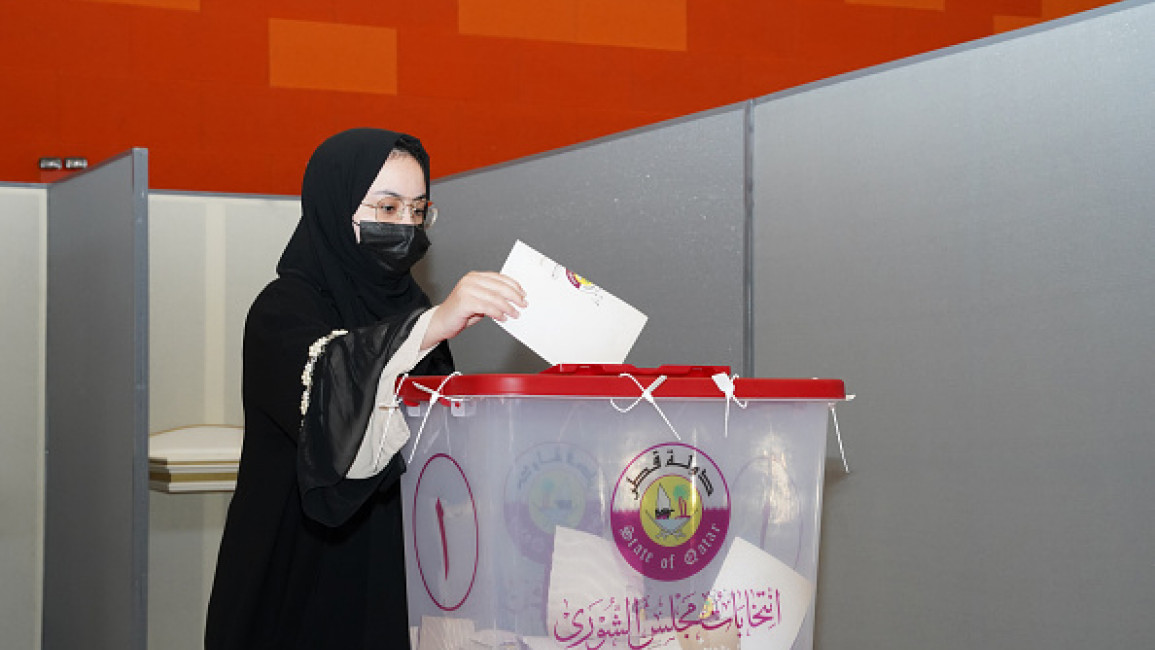Voting ends in first Qatar legislative elections
Qataris voted on Saturday in the Gulf Arab state's first legislative elections for two-thirds of the advisory Shura Council, a process that has stirred domestic debate about electoral inclusion and citizenship.
Turnout for the election of 30 members of the 45-seat body was 63.5%, the internal ministry said in a statement early on Sunday. The ruling emir will continue to appoint the remaining 15 Council members.
The Council will enjoy legislative authority and approve general state policies and the budget but has no control over executive bodies setting defence, security, economic and investment policy for the small but wealthy gas producer, which bans political parties.
"With the chance to vote, I feel this is a new chapter," Munira, who writes children's books and asked to be identified by only one name, told Reuters. "I'm really happy about the number of women standing as candidates."
Preliminary results show that voters elected none of the 26 women who stood among the 233 candidates across 30 districts in the country, which has for several years held municipal polls.
Men and women voted in separate sections. Ahead of closing, a large crowd cast their ballots in a marquee in the outskirts of the capital Doha, including members of a main tribe, some of whose members had protested over narrow voting eligibility.
"At the end of this day, the people of Qatar, they're going to be part of the decision making," said candidate Sabaan Al Jassim, 65, in the Markhiya district.
The vote indicates the ruling al-Thani family is "taking seriously the idea of symbolically sharing power, but also effectively sharing power institutionally with other Qatari tribal groups," said Allen Fromherz, director of Georgia State University's Middle East Studies Center.
The election, approved in a 2003 constitutional referendum, comes ahead of Doha hosting the World Cup soccer tournament next year.
Qatar's deputy prime minister and foreign minister, Sheikh Mohammed bin Abdulrahman al-Thani, last month described the vote as a new "experiment" and said the Council cannot be expected from the first year to have the "full role of any parliament".
Kuwait has been the only Gulf monarchy to give substantial powers to an elected parliament though ultimate decision-making rests with its ruler, as in neighbouring states.
The foreign minister has said there is a "clear process" for the electoral law to be reviewed by the next Shura Council.
(Reuters)



